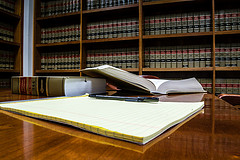As I ducked out of a Compute Midwest session on reverse engineering the human neocortex early last Friday, I explained to founder Mike Gelphman that I had to go give a talk to the Mid-American Association of Law Librarians (MAALL). He gave me a quizzical look and wondered how our work at KC Digital Drive was relevant for that group.
It was a great question, and it got me thinking about how much work we do telling the Kansas City story and helping to lead the conversation around digital city building globally. So even though this address was here in KC, I’m committed to doing a better job tracking how we build community and identify opportunities within Kansas City and beyond through speaking engagements, attending events and conferences, consulting with other cities, and generally participating in global networks.
One of these networks emerging is that of the intersection of cities, technology, and law. In addition to the MAALL conference I spoke at, this week, members of our Code for KC Brigade, including the Captain, Paul Barham, are joining our friends at the UMKC Law School, including tweeting Dean Ellen Suni, in NYC for a discussion at the Brooklyn Law School on how technology is impacting the legal profession.
At Bklyn Law forming a consortium of cities and law schools to streamline processes and make law and services more accessible. #citylawtech
— Ellen Y. Suni (@umkclawdean) October 30, 2015
We have written at some length about our growing partnership with UMKC’s Law School—hosting our HackKC event in June, working closely with the Code for KC Brigade on several projects, staffing KCMO’s innovation office while the CIO search is ongoing, and research support on smart city and open data white papers (more on these soon). And it looks like they kinda like us too.
#Zuesmon Paul Barham is a great Captain. We couldn’t accomplish what we do without him. #umkclaw #citylawtech https://t.co/oWsfsmL5IL — Ellen Y. Suni (@umkclawdean) October 30, 2015
I was delighted then, when UMKC Law’s Director of IT, Michael Robak, asked me to address the MAALL gathering about all the civic tech and smart city momentum in KC over the past several years. While much of that story can be found throughout our website, there were a couple things that I though particularly relevant to both lawyers and librarians about the work that we do.
Three reasons lawyers have a role in emergent tech:
- Our current regulatory framework is ill-equipped to handle emerging tech. We are going to need lots of new rules and new interpretations about intellectual property, about data privacy, about rights and responsibilities, about cybercrime and cyberviolence.
- Beyond regulations that serve to define and limit activity, we also need policies that set the foundation for where we go next. But technology changes so fast, it’s not enough to simply keep up. Lawyers are trained to trace arguments back to first principles (and extrapolate from principle forward). As the innovation economy’s bias towards action becomes increasingly seductive, it is important to have a grasp on the principles we hold dear and how those are served or betrayed by the actions we take.
- The ability to see both sides of an issue and argue both ways should serve us well as we develop policy for the digital city. The tension between analog and digital is one of many dialectics we must manage now and in the immediate future.
Librarians have a unique dialectical challenge as well, trying to bring order to the explosion of information that technology makes increasingly available.
Three critical challenges and opportunities for librarians:
- As a profession, librarians face an existential moment. Libraries across the world are grappling with the question of what libraries are for when books are easily reproduced online. Librarians face professional urgency about how to repackage and deliver their skills, which as it turns out have immense value in the information age.
- The curatorial skills of the librarian are the most obviously applicable. It’s not clear if the ubiquity or availability of information and media is actually making it easier to find. Bridging the gap between the seeker of information and that which they seek—a router, if you will—is a skill in high demand.
- But perhaps less obvious is the increasing need for metadata and taxonomies. We see this constantly in our work at KC Digital Drive. Each digital ecosystem we delve into—health care, education, the digital divide, civic tech—demands its own asset inventory and lexicon. The collaborative nature of knowledge work, powered by networks and connected devices, is in constant demand of interoperability. (Witness the health forum we hosted earlier this month on electronic medical records.)
So, lawyers and librarians both sit in a pretty interesting place. I hope they’re up to the task! And it’s great to see UMKC leading the way.

